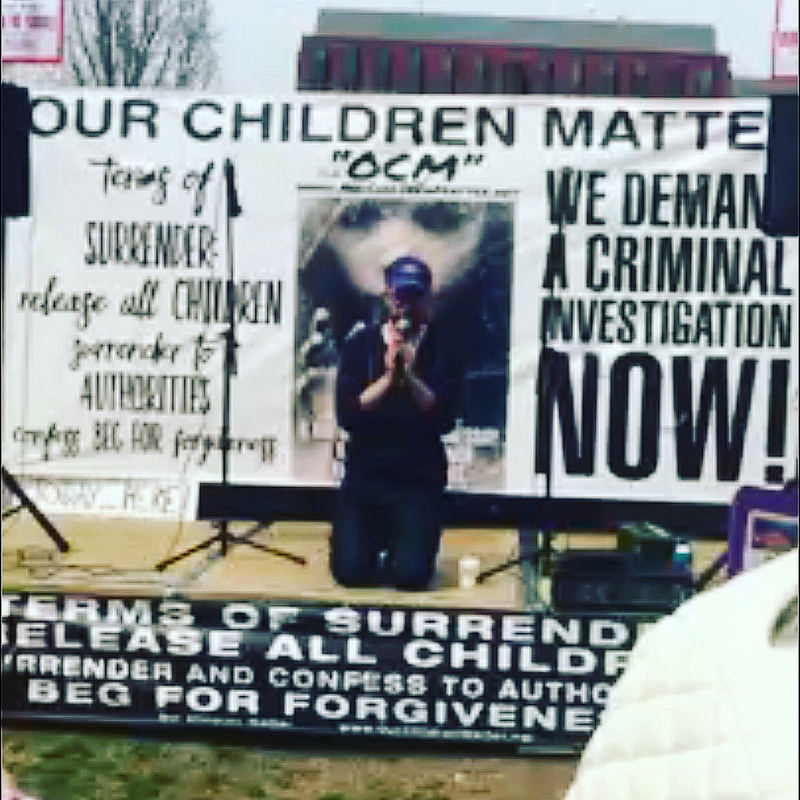| This is how it starts. A sex trafficker finds a photo of a young girl on Facebook. He digitally morphs it onto someone else’s naked body, then sends a threatening message. He will show the doctored photo to the girl’s bishop or other ecclesiastic leader, or to her friends. He tells her how ashamed she is going to feel. Then he offers to leave her alone if she will just send him one actual photo of herself naked. The girl, perhaps 14 or 15 years old, is scared. She doesn’t know what to do, so she complies. But the trafficker doesn’t go away. He uses the photo she |
| | sends to demand more, and that keeps up until he convinces her to meet him. Then he offers to go away if she will just turn one trick for him. But that isn’t the only way young girls are lured into prostitution. Sometimes the threats are more violent. The trafficker will shoot a dog in the head in front of a girl, then threaten to do the same to her siblings, or her parents, if she doesn’t comply. Others are plied with gifts and friendship, maybe at times when they aren’t getting along with their parents and need someone to listen. But even that doesn’t begin to describe the problem of forced prostitution, and forced physical labor, that happens in every state. Syndicates bring children, and also adults, from other nations. Some are lured by false promises of employment. Some are orphaned and without resources. Some are sold by parents desperate for money. The victims include young boys and well as girls. In what was perhaps Utah’s most notorious case to date, Victor Manuel Rax allegedly used teenage boys against their will to sell drugs. He committed suicide in jail before his trial four years ago. January is National Human Trafficking Awareness Month. The key word there is “awareness.” Utah Attorney General Sean Reyes, who sat down with me on Wednesday along with Leo Lucey, his chief of investigations, would like you to know it’s happening right here, in a state where many people are trusting and unaware. That willingness to trust can work in the trafficker’s favor. Last year, the state launched 57 investigations, but that doesn’t tell the whole story. In some trafficking cases, the state may choose to file other criminal charges to keep victims from having to testify. Under Reyes’ leadership, Utah has established a statewide task force that brings various law-enforcement agencies, prosecutors and even victim therapists together. The state has nine full-time investigators, including two who do nothing but human trafficking investigations, and one full-time prosecutor who handles only such cases. “If you gave us 20 investigators, doubled it, I almost guarantee you we would have double the cases,” Reyes said. “There is still so much of it out there we could expand full-time and not meet the supply of human trafficking cases that are out there.” Part of the problem is the vernacular. Human trafficking is a nicer term for slavery. Last year I met with Kevin Bales, a professor of contemporary slavery at Britain’s University of Nottingham. He told me that owning a slave today is cheaper than in the Antebellum South. Back then, you would need about $45,000 in today’s money for a slave. Today, a few hundred dollars will do in many parts of the world. According to the Global Slavery Index, 48.5 million people are enslaved worldwide, and 57,700 of them are in the United States. The problem didn’t end at Appomattox. Lucey said the state’s task force has been so successful that the bad guys have been forced to adapt. They know how to hide what they’re doing, and how to funnel money where it’s hard to trace. The Utah Legislature has passed laws that ensure the victims will receive help, rather than punishment for the sex crimes they were forced to commit. But still the problem goes on. Back to the teenage girl with the Facebook page, an anecdote based on an actual case in Utah. Lucey underscores the dangers. “This year we’ve had several cases where all the young women (involved) were from local high schools here,” he said. To be sure, this is not the most prevalent crime in Utah. More people have their cars burglarized, for instance, than have their children stolen. Given what is at stake, however, few crimes ought to concern Utahns more. |


 RSS Feed
RSS Feed

